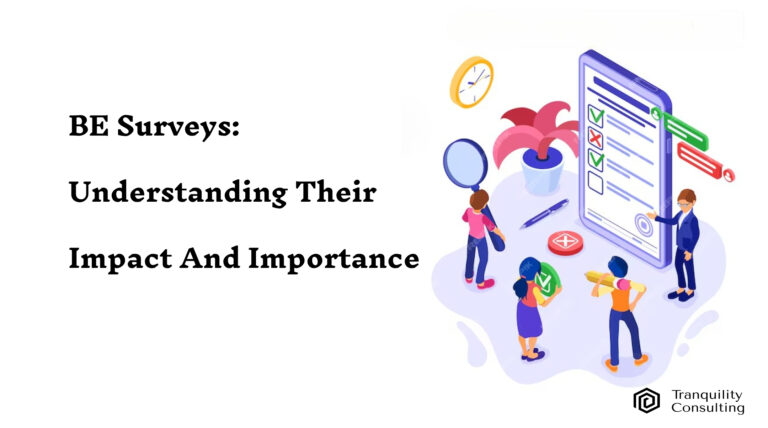The Bureau of Economic Analysis (BEA) Surveys, often referred to as BE Surveys, are crucial tools in understanding the economic landscape of the United States. The BEA conducts these surveys to collect and analyze data that informs policymakers, economists, and businesses about the state of the economy. This blog will discuss BE Surveys, their significance, and how they affect economic policy and business decisions.
What Are BE Surveys?
BE Surveys are a series of surveys conducted by the Bureau of Economic Analysis, an agency within the U.S. Department of Commerce. These surveys gather comprehensive data on various aspects of the U.S. economy, including international trade, investment, transportation, and other business activities. The primary objective of BE Surveys is to provide accurate and timely economic information that supports economic analysis and policy-making.
Criticaltical Types of BE Surveys
International Transactions Survey (ITS):
- This survey collects data on the international trade of goods and services in the U.S. and the income flows between the U.S. and foreign countries. It helps understand trade balances and the impact of global economic conditions on the U.S. economy.
Benchmark Survey of Foreign Direct Investment (FDI):
- This survey provides detailed data on foreign investments in the U.S. and U.S. investments abroad. It helps assess foreign investments’ economic impact and understand global economic interactions.
Quarterly Survey of Foreign Direct Investment in the U.S. (BE-577):
- This survey tracks foreign direct investment in the U.S. monthly, offering insights into investment trends and their effects on the U.S. economy.
Survey of Current Business (SCB):
- The SCB collects data on current business conditions, including production, employment, and investment. This survey is essential for tracking economic performance and understanding business cycles.
Regional Economic Information System (REIS):
- The REIS survey provides data on regional economic activities, including employment, income, and gross domestic product (GDP). It helps in analyzing regional economic trends and disparities.
Filing these surveys is mandatory, and failure to comply may result in penalties. Non-US residents with businesses in the US should be mindful of these reporting requirements.
Significance of BE Surveys
BE Surveys play a pivotal role in economic analysis and policymaking. Here’s why they are significant:
Economic Policy Formulation:
- BE Surveys provide data that helps policymakers understand financial trends and make informed decisions. This data is crucial for shaping fiscal and monetary policies, adjusting interest rates, and implementing economic stimulus measures.
Business Planning and Investment:
- Businesses use BE Survey data to make strategic decisions. For instance, data on foreign direct investment helps companies assess potential markets and investment opportunities. Similarly, information on international trade can guide export and import strategies.
Economic Forecasting:
- BE Surveys contribute to economic forecasting by providing historical data and trends. Economists and analysts use this data to predict future financial conditions and plan accordingly.
Regional Development:
- Data from the REIS survey help understand regional economic disparities and guide regional development initiatives. This information is vital for local governments and development agencies.
Public Accountability:
- BE Surveys enhance public accountability and trust in economic policies and decisions by providing transparent and comprehensive financial data.
How BE Surveys Affect Economic Policy and Business Decisions
The impact of BE Surveys on economic policy and business decisions is profound. Here’s a closer look:
Influencing Fiscal Policy:
- Data from BE Surveys helps the government determine the need for fiscal interventions. If the data indicates a slowdown in economic activity, the government may introduce tax cuts or increase public spending to stimulate growth.
Guiding Monetary Policy:
- Central banks use BE Survey data to set interest rates and manage inflation. Accurate data on economic conditions help make appropriate monetary policy adjustments.
Strategic Business Decisions:
- Companies use BE Survey data to identify market trends and make investment decisions. Understanding international trade patterns can help businesses adjust their supply chains and market strategies.
Investment Planning:
- Foreign and domestic investors rely on BE Survey data to assess economic stability and investment potential. This data influences investment decisions and contributes to market confidence.
Economic Research:
- Researchers and analysts use BE Survey data to study economic phenomena, test hypotheses, and develop financial models. This research contributes to a deeper understanding of economic dynamics.
Challenges and Future of BE Surveys
While BE Surveys provide valuable data, they also face challenges. Ensuring data accuracy and completeness is a constant challenge, especially in a rapidly changing economic environment. Additionally, as global economic interactions become more complex, BE Surveys must adapt to capture new trends and dynamics. The future of BE Surveys involves leveraging advanced technologies and methodologies to enhance data collection and analysis. Incorporating real-time data and using big data analytics can improve the accuracy and timeliness of the surveys.
Conclusion:
BE Surveys are essential tools for understanding and analyzing the U.S. economy. They provide critical data that supports economic policy formulation, business planning, and regional development. As the financial landscape evolves, BE Surveys will guide economic decisions and ensure informed policy-making. By staying informed about BE Surveys and their impact, policymakers, businesses, and researchers can better navigate the complexities of the economy and make strategic decisions that contribute to economic stability and growth.
| Survey Name | Description | Filing Frequency | Due Date |
| BE-13: Survey of New Foreign Direct Investment in the United States | Collects data on new foreign direct investment made in the U.S. by foreign investors. | As required (for each new investment) | 45 days after the transaction completion date |
| BE-577: Quarterly Survey of U.S. Direct Investment Abroad | Collects quarterly data on U.S. direct investment abroad, focusing on U.S. parent companies and foreign affiliates. | Quarterly | 30 days after the quarter ends (45 days for the final quarter) |
| BE-605: Quarterly Survey of Foreign Direct Investment in the U.S. | Collects quarterly data on foreign direct investment in U.S. companies. | Quarterly | 30 days after the quarter ends (45 days for the final quarter) |
| BE-180: Benchmark Survey of Financial Services Transactions Between U.S. Financial Service Providers and Foreign Persons | Gathers information on financial services transactions between U.S. companies and foreign persons. | Every 5 years (benchmark); Annual for large reporters | 90 days after the end of the calendar year (120 days for respondents with 50 or more affiliates) ( July 31, 2025) |
| BE-10: Benchmark Survey of U.S. Direct Investment Abroad | Provides data on the operations of U.S. parent companies and their foreign affiliates. | Every 5 years | 31 May (for fewer than 50 foreign affiliates), 30 June (for 50 or more foreign affiliates) |
| BE-11: Annual Survey of U.S. Direct Investment Abroad | Annual data collection for U.S. direct investment abroad on parent companies and their foreign affiliates. | Annually | 31 May |
| BE-12: Benchmark Survey of Foreign Direct Investment in the U.S. | Gathers detailed information on foreign direct investment in U.S. companies. | Every 5 years | 31 May (for fewer than 50 U.S. affiliates), 30 June (for 50 or more U.S. affiliates) |
| BE-15: Annual Survey of Foreign Direct Investment in the U.S. | Annual collection of data on foreign direct investment in U.S. enterprises. | Annually | 31 May |
| BE-45: Quarterly Survey of Insurance Transactions by U.S. Insurance Companies with Foreign Persons | Collects data on insurance services transactions between U.S. insurance companies and foreign entities. | Quarterly | 30 days after the quarter ends |
| BE-125: Quarterly Survey of Transactions in Selected Services and Intellectual Property with Foreign Persons | Collects data on U.S. companies’ services and intellectual property transactions with foreign persons. | Quarterly | 45 days after the quarter ends |
| BE-120: Benchmark Survey of Transactions in Selected Services and Intellectual Property with Foreign Persons | Similar to BE-125, it collects detailed data every 5 years. | Every 5 Years | 90 days after the end of the calendar year |
| BE-185: Quarterly Survey of Financial Services Transactions Between U.S. Financial Service Providers and Foreign Persons | Gathers quarterly data on financial services transactions between U.S. and foreign entities. | Quarterly | 45 days after the quarter ends |
FAQs
- What is the Bureau of Economic Analysis (BEA)?
- The BEA is a U.S. government agency providing economic data and analysis, including national income, GDP, and international trade data.
- What types of data are collected in BE Surveys?
- BE Surveys collect data on international trade, foreign direct investment, business conditions, and regional economic activities.
- How do BE Surveys influence economic policy?
- BE Surveys provide data that helps policymakers make informed decisions on fiscal and monetary policies, including interest rates and public spending.
- Why are BE Surveys important for businesses?
- Businesses use BE Survey data to make strategic decisions, assess market opportunities, and plan investments based on economic trends and conditions.
- What challenges do BE Surveys face?
- BE Surveys face challenges related to data accuracy and completeness and adapting to changing economic conditions. Efforts are ongoing to improve data collection and analysis methodologies.
If you have any questions or need business-related tax consulting advice, please get in touch with us at: [email protected]





